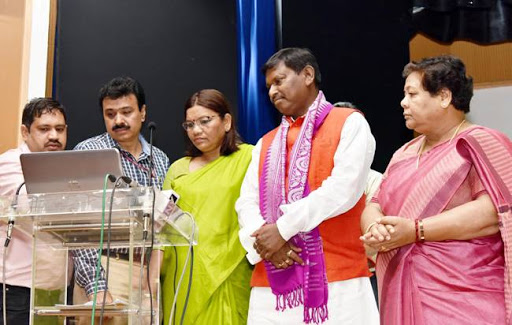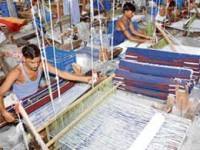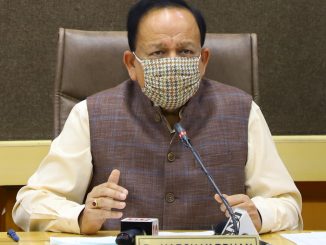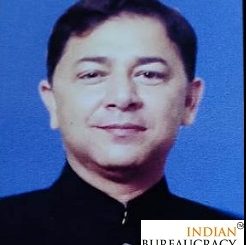
PIB News Update: Union Minister for Tribal Affairs Shri Arjun Munda has emphasized on the entrepreneurial development of Tribal women all over the country by providing them proper education and by enhancing their skills. He said that the Central government has taken several important initiatives for the overall development of tribal people, especially tribal women of our country. The Government has launched a special campaign from 1st to 7th March, 2020 in the run up to the International Women’s Day on 8th March this year with Tribal Affairs being the theme on 5th March.
Shri Munda said that during the current academic year, total number of tribal students enrolled in various Eklavya Model Residential Schools across the country is 73145 and out of which 36435 are girl students studying in different EMRSs. Around half of the total students studying in EMRSs are girls which clearly shows that the literacy rate among tribal girls has dramatically improved, which India was lagging behind earlier.
He said that National Scheduled Castes Finance and Development Corporation (NSTFNDC) provides Concessional loan under the scheme ‘Aadivasi Mahila Sashaktikaran Yojna’, under which Scheduled Tribe women can undertake any income generation activity. Loan upto 90 per cent for the scheme costing upto 1 lakh is provided at a highly concessional rate of interest of 4 per cent per annum. Ministry of Tribal Affairs extends its support to NGOs which are concerned with education and health of tribal girls, he added.
Shri Munda said that “PM Van Dhan Yojna”, a recent initiative by Ministry of Tribal Affairs is helping in livelihood generation among tribal women, ensuring maximum benefit through wealth of forest (Van Dhan) i.e. minor forest produce. TRIFED has taken a step forward to promote tribal handicrafts and goods by opening up of new outlets namely, TRIBES INDIA at different locations across the country. Large number of handicraft items in these outlets are produced by tribal women, thus helping tribal women to earn their livelihood and boosting their income.
The Minister said that the Ministry of Tribal Affairs is implementing the many Scholarship schemes for Scheduled Tribe students in the country including Girls and Women students with a view to provide them financial assistance, so that they can complete their education viz. –
- Pre-Matric Scholarship for ST students (9th& 10th Std) : This is an open ended demand driven Centrally Sponsored Scholarship Scheme. Applicable to students who are studying in Classes IX-X. Priority is given for girls. The beneficiary date is managed by the State/UT, however as per the beneficiary data uploaded by the State/UTs on the DBT-MIS portal of this Ministry as on 31.01.2020 the details of female beneficiaries is an below:-
| 2017-18 | 2018-19 | |
| Total beneficiary data uploaded by States/UTs | 1137252 | 791209 |
| Female beneficiaries | 581701 | 399145 |
- Post-Matric Scholarship for ST students (Class 11thonwards): This is an open ended demand driven Centrally Sponsored Scholarship Scheme. Applicable to students who are studying in any recognised course from a recognised institution for which qualification is Matriculation/Classes X or above. Priority is given for girls. The beneficiary data is managed by the State/UT, however as per the beneficiary data uploaded by the State/UTs on the DBT-MIS portal of this Ministry as o 31.01.2020 the details of female beneficiaries is as below:-
| 2017-18 | 2018-19 | |
| Total beneficiary data uploaded by States/UTs | 1712373 | 1736131 |
| Female beneficiaries | 827377 | 846138 |
- National Fellowship and Scholarship for Higher Education of ST students : Under the scheme fellowships are provided to ST Students each year for pursing higher studies in India for M.Phil ad PhD. Also, scholarship is given to ST Students (Top-Class Scholarship) for pursuing studies in prescribed courses in any of the 246 institutions of excellence across the country like IIT, AIIMS, IIMs, NIITs, etc. identified by the Ministry. 30% of the scholarship slots under this scheme are awarded to girl candidates. The details of female beneficiaries for both Fellowship and Top-Classes component of the Scheme is given below:-
| 2017-18 | 2018-19 | |
| Total Fellowship Beneficiaries | 2226 | 2519 |
| Female Fellowship Beneficiaries | 1033 | 1141 |
| Total Top –Class Beneficiaries | 2395 | 1990 |
| Female Top–Class Beneficiaries | 359 | 239 |
- National Overseas Scholarship (NOS) for ST candidates for studying abroad: The Scheme provides for financial assistance to selected students to pursue Post Graduation, PhD & Post-Doctoral study abroad. A total of 20 awards are given every year out of which 30% (6 awards) are given to girl candidates. Disbursement of scholarships through the Ministry of External Affairs/ Indian Mission abroad. The details of female beneficiaries (for whom the payment is made to MEA during the financial year) is as below:-
| 2017-18 | 2018-19 | |
| Total Beneficiaries | 22 | 23 |
| Female Beneficiaries | 1 | 6 |
The Scholarship Schemes mentioned at (i) and (ii) above are implemented through the States / UTs, and funds are released to States / UTs for disbursement to eligible ST students. Under these schemes, viz., Pre-Matric Scholarship and Post-Matric Scholarship for ST students, the funds are being shared at the ratio of 75:25 between the Centre and State Government/UTs, and 90:10 for the North Eastern States and Jammu & Kashmir, Uttarakhand and Himachal Pradesh.Under the scheme (iii) above, funds are released to the Institutes / students, and under NOS scheme, funds are released to Ministry of External Affairs on reimbursement basis.
Shri Munda dwelt upon many schemes being run successfully by the Ministry of Tribal Affairs for the welfare of Tribal Girls and Women viz. –
- Scheme of Strengthening Education among ST Girls in Low Literacy Districts :The scheme aims to bridge the gap in literacy levels between the general female population and tribal women, in the identified districts or blocks, more particularly in naxal affected areas and in areas inhabited by Particularly Vulnerable Tribal Groups (PVTGs), by creating the required ambience for education for ST girls. It is a Central Sector gender specific scheme and the Ministry provides 100% funding. The grants are provided to the eligible NGOs on an application (in the prescribed format) duly recommended by the multidisciplinary State Level Committee of the concerned State Government / UT Administration. The Scheme has been revised with effect from 4.2008. It is being implemented in 54 identified low literacy districts where ST Population is 25% or more and ST female literacy rate is below 35% as per 2001 Census.
- Scheme of Vocational Training in Tribal Areas :The main aim of the Scheme is to develop the skills of the ST youth for a variety of jobs as well as self-employment and to improve their socio-economic condition by enhancing their income. The scheme covers all the States and Union Territories. It is not an area-specific scheme, the condition being that free vocational training facilities are extended only to tribal youth, 100% grants under the scheme are provided to the States, Union Territories and other Associations implementing the Scheme. Each Vocational Training Centre (VTC) under the scheme may cater to five vocational courses in traditional skills depending upon the employment potential of the area. It has been decided to discontinue the Scheme from 2018-19 and the intervention is to be subsumed under the Scheme Special Central Assistance to Tribal Sub-Scheme (SCA to TSS).
- Scheme of Girls & Boys Hostels for STs :Under the scheme, Central assistance is given to States/UTs/Universities for construction of new hostel buildings and/or extension of existing hostels. The scheme has been revised w.e.f. 1.4.2008. Under the revised scheme, State Governments are eligible for 100% central share for construction of all Girls’ hostel and also for construction of Boys’ hostel in naxal affected areas (identified by Ministry of Home Affairs from time to time). The funding pattern for the other Boys’ Hostel to State Governments is on 50:50 basis. In case of UTs, the Central Government bears the entire cost of construction of both Boys’ and Girls’ hostels. Hostels for Vocational Training Centres (VTCs) for ST Girls and Boys are funded on the same criteria as other hostels. Members of Parliament could also provide funds as a substitute of State share from their MPLAD scheme for this purpose. Maintenance of the hostel is the responsibility of the concerned States/UTs. The hostels may be for middle, secondary, college or university level education. It has been decided to discontinue the Scheme from 2018-19 and the intervention is to be subsumed under the Scheme Special Central Assistance to Tribal Sub-Scheme (SCA to TSS).
- Scheme of Ashram Schools in Tribal Sub-Plan Area :The objective of the scheme is to provide residential schools for STs in an environment conducive to learning to increase the literacy rate among the tribal students and to bring them at par with other population of the country. The scheme has been revised with effect from the financial year 2008-09. Under the revised scheme, State Governments are eligible for 100% central share for construction of all Girls’ Ashram Schools and also for construction of Boys’ Ashram Schools in naxal affected areas (identified by Ministry of Home Affairs from time to time). The funding pattern for the other Boys’ Ashram Schools is on 50:50 basis, while cent percent assistance is given to UTs for construction of both Girls and Boys’ Ashram Schools. The scheme covers primary, middle, secondary and senior secondary level of education. It has been decided to discontinue the Scheme from 2018-19 and the intervention is to be subsumed under the Scheme Special Central Assistance to Tribal Sub-Scheme (SCA to TSS).







Leave a Reply
You must be logged in to post a comment.